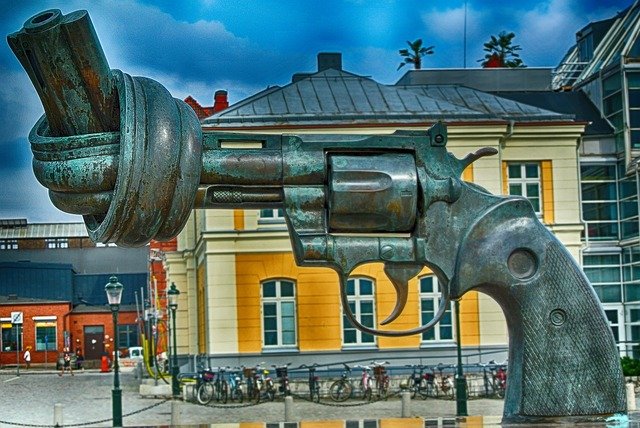- Chronic overload often results in a high potential for aggression. In this case, overcoming aggression can only succeed if the stress is first reduced.
- reducing aggressions with sport frees from internal pressure and enables a life without uncontrolled anger escalation.
- therapists often advise to get out of the constellation that causes an outburst of aggression. In most cases, leaving the room is already enough.
- if one’s own needs are reduced somewhat, aggression can be defeated, at least partially.
- special techniques that reduce aggression lead to relaxation. Deep and intensive inhalation and exhalation has proven to be effective during a crisis situation. Anti-aggression courses offer further methods of aggression management.
- The saying „Practice makes perfect“ also applies to anger reduction and aggression management. Learning prosocial behavior requires a continuous training program. Possible setbacks are normal and must not reduce motivation.
- reducing aggression with a punching bag is already practiced by many people. While beating the training device, the accumulated anger is reduced considerably. If necessary a pillow is sufficient, which is beaten on.
Reduce aggression in children
An unnatural stimulus satiation is certainly one of the co-triggers for aggressive behavior in children. Scientists have also found that the willingness to be aggressive increases due to corresponding genetic influences. If conspicuous character traits already exist in the parental home, the offspring most likely adopts similar behaviors.
Reducing aggression through play is the preferred method for children and adolescents. Educators and teachers who want to defeat aggression in their protégés therefore rely on role-playing and sports. In a child-friendly way, anger is directed in a different direction and a socially acceptable cooperation is trained.
There have also been made several studies in recent years that sewing has a very positive effect on a children’s mind. When executing this kind of craft, children need to be focused on one thing only in order to both not hurt themselves but also to be able to get the job done and sew what they wanted to. There are sewing machines specifically designed for children. I couldn’t find a lot of helpful UK guides about this topic, but since I speak German as well, here is a helpful (German) guide about sewing machines for children: https://nähmaschine-tests.de/kinder-naehmaschine/
If you don’t speak any German, you may just translate it as well.
People with high aggression potential quickly become outsiders in society. With the help of these ingenious tips, you will be able to cope better with aggression and anger.

Suppress anger and aggression
When the fuses blow with rage and anger, one’s own voice habitually increases dramatically in volume.
Screaming liberates …
… therefore a loud voice very often appears as a relief reaction to adverse circumstances. Such behavior falls under verbal aggression. The negative emotions make their way out into the open by shouting.
The pleasant effect is immediately noticeable. However, if the feelings are thwarted by the absence of a spontaneous response, an unconscious repression process sets in instead. Over time, the perception moves into a state of forgetfulness, without any stress processing having taken place.
If the suppressed aggressions get the upper hand, it will eventually lead to a super disaster. If not during the situation in question, the reduction of the suppressed anger should at least take place at a time interval.
Free yourself with screaming
In the forest there is an excellent opportunity to literally roar your soul out of your body. With the first attempt, probably only a timid tone comes out. The fear that someone is nearby and might be listening allows at first only a barely audible croaking. But with each attempt the voice gains strength until the screams come out unhindered.
The pent-up aggression is now finally allowed to rise to the surface again. For some people, tears bring the urgently needed relief, which is why the screaming can be combined with howling if necessary.
Instead of a forest, the place under a railroad bridge is also a good choice for a noisy reduction of aggression. As soon as the train starts rolling, the screams are drowned in the noise of the railroad wheels. Loud singing has a similar aggression reducing effect. It is best to turn on the radio or CD player and sing along loudly.
If you liked this contribution, please share it with others, I would be very pleased.


